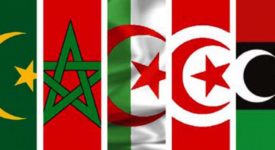The adoption of the second part of the 2013 Action Plan in favour of Morocco has been recently announced by the European Commission. This programme of a total amount of €166.9 million once again confirms the EU’s commitment to social development and closer ties between the European Union and Morocco.
The key aim of the programme is to support the strategy of gradually bringing Morocco closer to the EU, which has been implemented by the Moroccan authorities since 2008 when the country was rewarded with the “advanced status” in the partnership between Morocco and the EU. In addition, the 2013 Action Plan proposes to continue EU support to the Moroccan educational strategy launched in 2008. As European Commissioner for Enlargement and Neighbourhood Policy, Štefan Füle, noted, “Our support to these two major strategies of our Moroccan partner aims at backing a global regulatory, economic and social point of agreement, between Morocco and the EU.”
Importantly, an €87 million programme in support of the advanced status aims at supporting the Moroccan government’s efforts to align its legislation to that of the EU for a progressive integration of the Moroccan economy to the single European market. It represents the second phase of EU support for the regulatory convergence strategy that was launched in 2011. The programme in support of the educational strategy with a budget of €89.9 million continues to back the efforts of the Moroccan authorities to ensure fair access to the basic educational system throughout the country, in order to enhance teaching quality and the system’s governance.
Earlier in December, the EU and Morocco also signed additional four important funding agreements totaling 1.86 billion dirhams in support to different programmes in the fields of public management and financing, employment, illiteracy and agriculture. According to the EU Ambassador to Morocco, Rupert Joy, “these four new grants show the continued commitment of the EU to support the Government of Morocco, in a coherent manner, in the reinforcement of public governance and the promotion of social and economic development.” In particular, the EU funding will seek to improve the efficiency and effectiveness of public management, as well as the equity and tax system return in the area of public governance. The EU funding will further focus on economic and social development by reinforcing the skills and supporting the very small businesses, to reduce youth unemployment. In the field of agricultural development, the plan is to promote the agricultural council, which is an essential support service to the small farmers.
Article Categories:
EUROPE'S NEIGHBORHOOD






